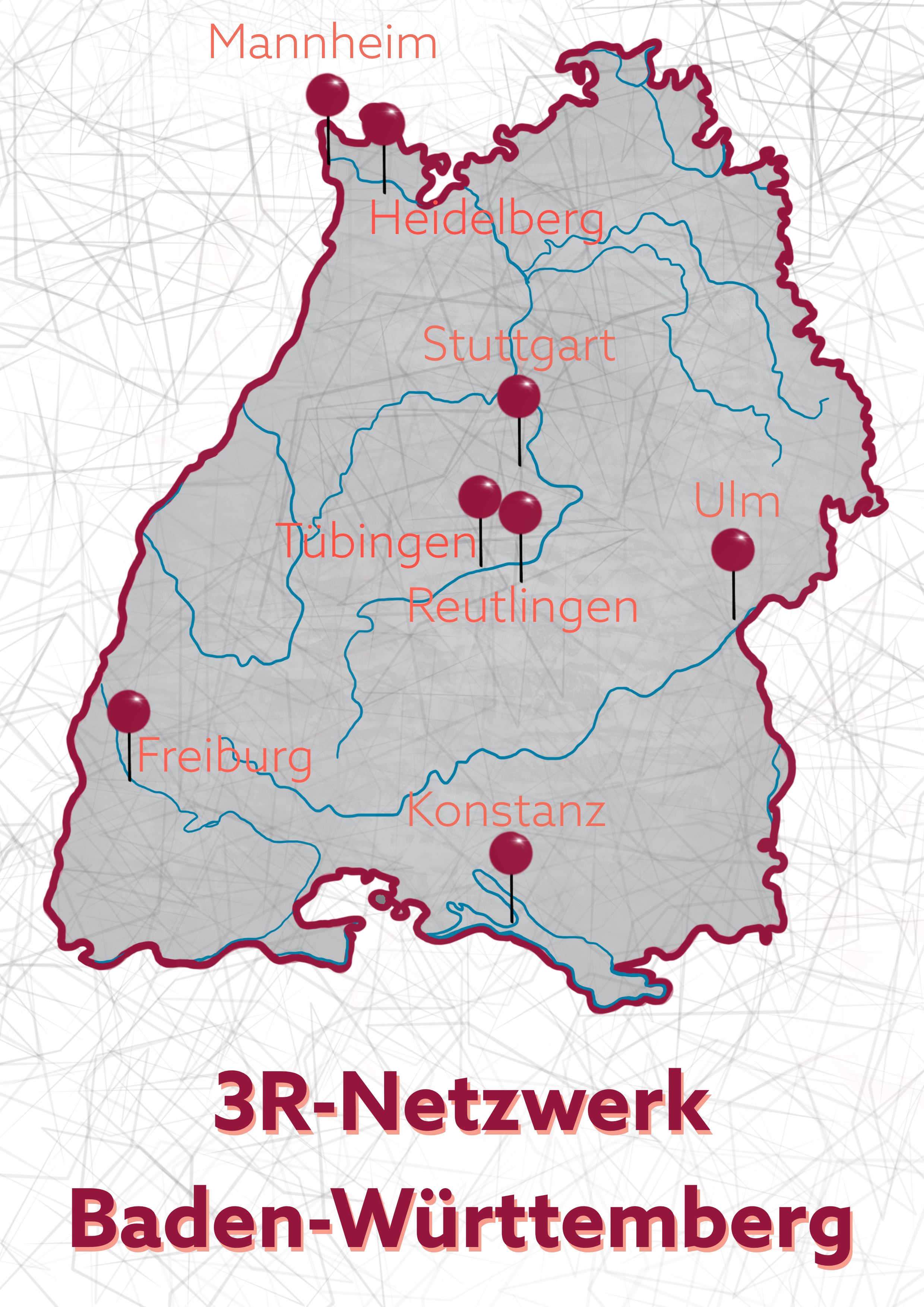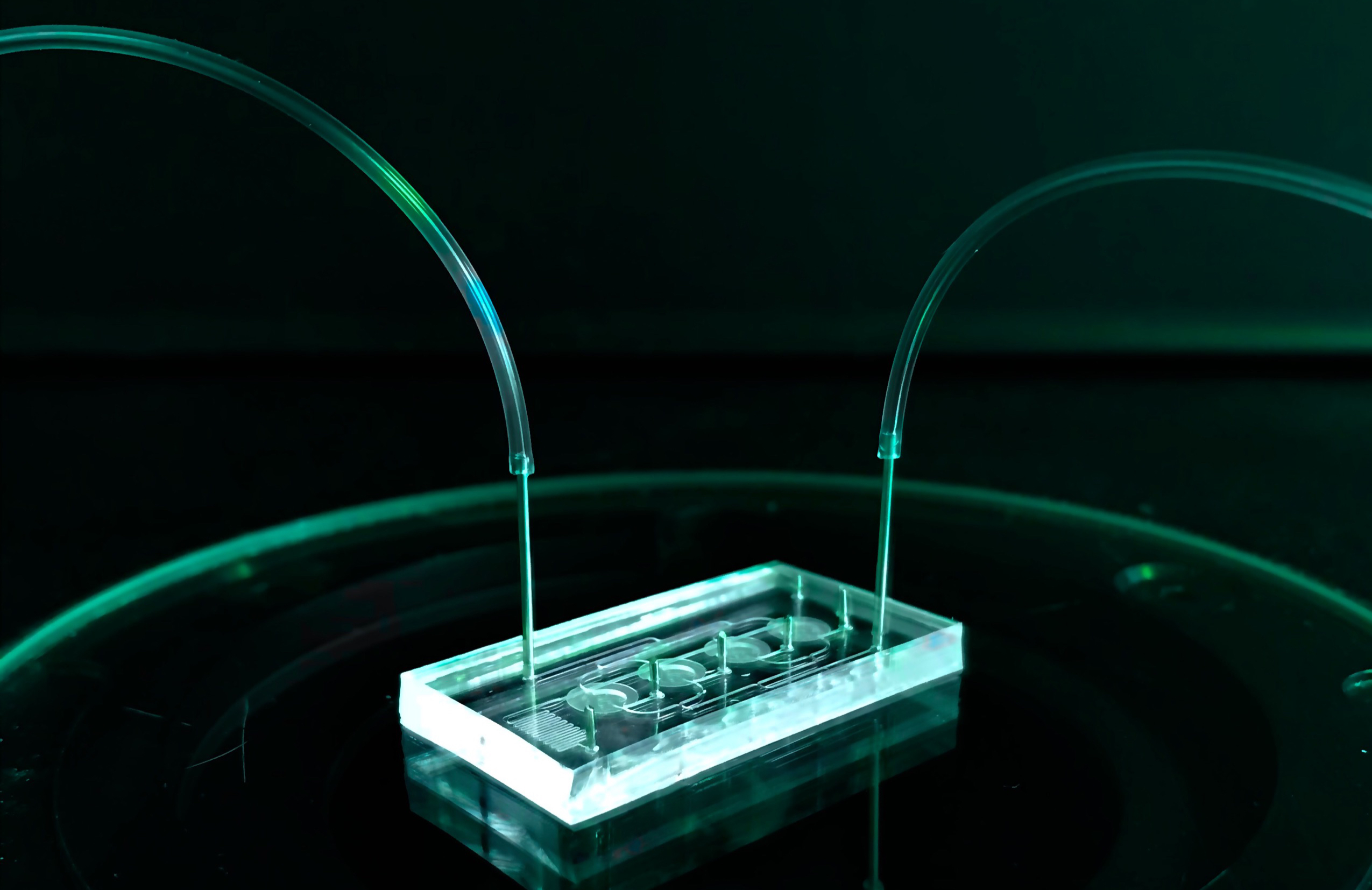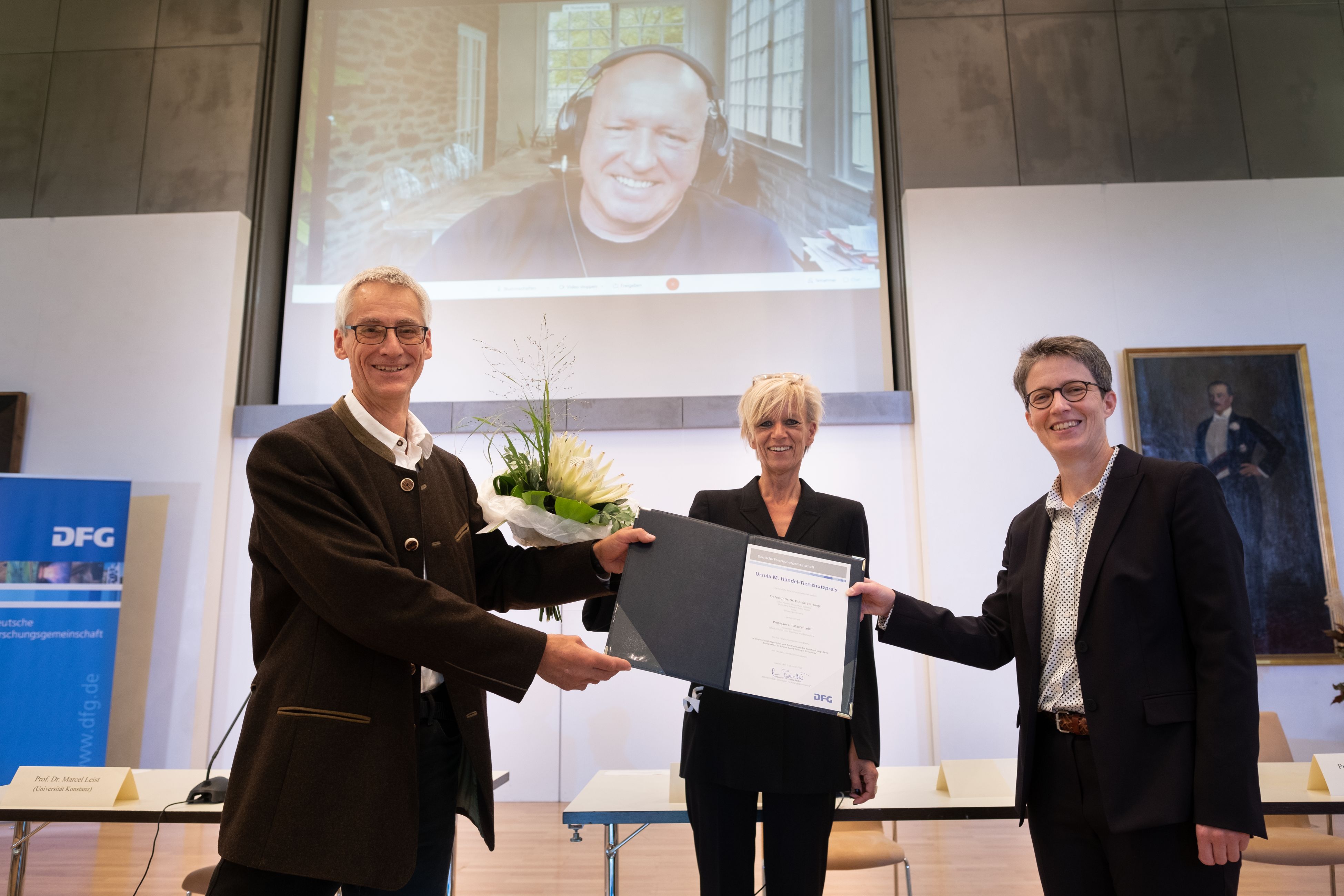3R-Center
Putting alternatives to animal testing into practice
Animal experiments are still central to biomedical research. However, it has become increasingly clear that not all of them are absolutely necessary. Alternative techniques exist. The new 3R-Netzwerk Baden-Württemberg is now seeking to promote these more vigorously - and improve animal welfare in cases where alternatives to animal testing are not available.
"Every year, an estimated 12 million animal experiments are performed in Europe alone. Many of them for traditional reasons, for example because high-ranking scientific publications require them as a mark of quality for research work," says Prof. Dr. Marcel Leist from the University of Konstanz. Leist, together with his colleague Prof. Dr. Dr. Thomas Hartung, founded CAAT-Europe (Centre for Alternatives to Animal Testing) in 2010. The joint venture between the University of Konstanz and the Johns Hopkins Bloomberg School of Public Health in Baltimore sees itself as a kind of transatlantic bridge between the USA and Germany for alternatives to animal testing.
State initiative promotes alternatives to animal testing
 The 3R network currently comprises eight locations throughout Baden-Württemberg. © 3R Center Tübingen
The 3R network currently comprises eight locations throughout Baden-Württemberg. © 3R Center TübingenThe Baden-Württemberg Ministry of Science, Research and the Arts (MWK) has also recognised this and wants to promote new approaches to replacing and reducing animal experiments and improving animal welfare and protection. To this end, it founded the 3R-Netzwerk Baden-Württemberg (3R Network Baden-Württemberg) in May 2021. The abbreviation 3R stands for "replacement, reduction, refinement" of animal experiments. The network’s primary goal is to replace animal experiments wherever possible with alternative or complementary methods (replacement) and, where animal experiments cannot currently be replaced, to sustainably reduce the number of such experiments (reduction) or to protect and improve animal welfare to the greatest extent possible (refinement).
The 3R Network Baden-Württemberg includes all major biomedical locations in the state. "The network currently involves five centres that form the basic structure of the network. These are based at the Universities of Tübingen/Reutlingen, Stuttgart, Konstanz, Heidelberg and Mannheim. In addition, three other research projects are based at the Universities of Heidelberg, Ulm and Freiburg and two projects in the field of training and further education are based at the Reutlingen University of Applied Sciences and the University of Ulm," explains Dr. Silke Keller. She heads the 3R Center Tübingen’s administrative office, which supports the MWK in coordinating the network’s activities. "We are starting from these seed crystals and will work to gradually expand the network." The MWK is providing funding worth 3.8 million euros to build the network, around 70 percent of the total cost of all the 3R Network projects, with the participating universities contributing the remaining 30 percent.
The 3R Network is planning to run seminars and workshops for members and researchers from Baden-Württemberg. In addition, annual conferences will be organised for all those involved in the ten funded centres and projects as well as for other interested parties. The conferences will most likely alternate between the locations of the five partners that form the basic structure of the network. The aim is to bring the players closer together, increase their visibility and promote information exchange. "But we also see ourselves as an interface to government," says Keller. "If you want to establish animal testing alternatives, you also have to convince legislators - especially when it comes to consumer protection, for example, an area where animal testing is still mandatory to ensure food and produce quality."
In vitro alternatives already exist
 Prof. Dr. Peter Loskill and his team are researching organs-on-a-chip, which can replace animal experiments in some areas of research. © Micro OrganoLab
Prof. Dr. Peter Loskill and his team are researching organs-on-a-chip, which can replace animal experiments in some areas of research. © Micro OrganoLabProfessor Dr. Peter Loskill is the head of the 3R Center for In Vitro Models and Animal Testing Alternatives in Tübingen and is involved in the development and application of so-called organ-on-a-chip systems. These are complex microfluidic systems that replicate tiny functional units of organ tissues on a chip. Please see our article entitled "Miniature organs with great potential" for further information on these chips.
In April, Loskill took up an interdisciplinary professorship at the University of Tübingen’s Medical Faculty and at the NMI in Reutlingen, which is intended to further expand the strategic relationship between the two locations in the field of organ-on-a-chip technologies. Like the 3R Network itself, the interdisciplinary professorship is also funded by the MWK.
CAAT-Europe provides more clarification
 Prof. Dr. Marcel Leist (left) and Prof. Dr. Dr. Thomas Hartung (on the TV screen) received the DFG Ursula M. Händel Animal Welfare Prize in 2020. Prof. Dr. Britta Siegmund, DFG Vice President (right), Prof. Dr. Brigitte Vollmar, chair of the Senate Commission on Animal Protection and Experimentation (centre). © DFG / Rolf K. Wegst
Prof. Dr. Marcel Leist (left) and Prof. Dr. Dr. Thomas Hartung (on the TV screen) received the DFG Ursula M. Händel Animal Welfare Prize in 2020. Prof. Dr. Britta Siegmund, DFG Vice President (right), Prof. Dr. Brigitte Vollmar, chair of the Senate Commission on Animal Protection and Experimentation (centre). © DFG / Rolf K. WegstIn addition to Loskill and his working group, Leist and Hartung's CAAT-Europe in Konstanz is also one of the network’s five seed crystals. It is committed to raising awareness of alternatives to animal testing as well as educating politicians and the general public about their potential. Leist has been active in this field for ten years and has connections with all major players in the field of animal testing alternatives. For example, he conducts information workshops for members of the European Parliament. Leist and his colleague Hartung received Germany's most prestigious animal welfare award for scientists in 2020 in recognition of their lifetime achievements: the German Research Foundation (DFG) Ursula M. Händel Animal Welfare Prize.
CAAT-Europe is also working on in vitro methods as alternatives to animal testing. "We have developed stem cell-based laboratory methods that mimic human brain structures and can provide real alternatives to animal testing in toxicology studies," Leist explains. He and his team have also established neurone models that enable animal-free pharmaceutical studies in the field of neurodegenerative diseases such as Parkinson's: "The models are now being used by 15 pharmaceutical companies. There is a lot of interest from industry."
There are a number of other promising approaches that can help avoid animal testing. "Some experiments can be replaced by clever, computer-assisted analyses of data that have already been collected. These are referred to as in silico alternatives," says Leist. "In general," Leist adds, "the bottleneck in many areas is less the lack of alternative technologies and more their implementation in biomedical research." The 3R Network and its partners have set out to change this. However, it is questionable whether it will ever be possible to circumvent all animal experiments in this way, but they can at least be reduced to a strict minimum.